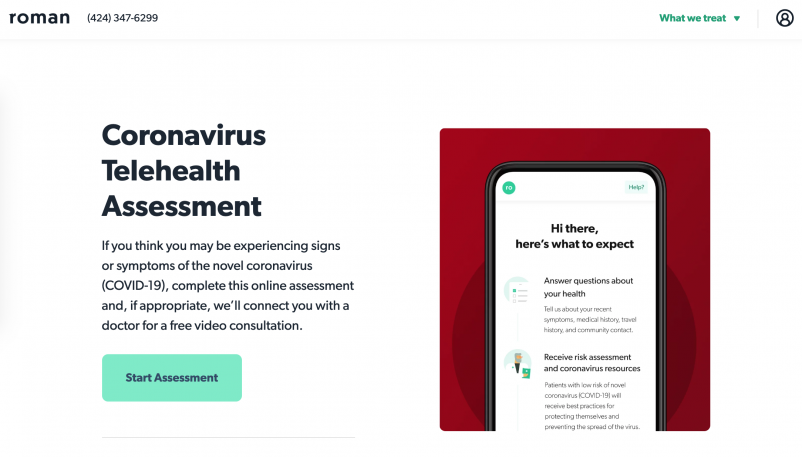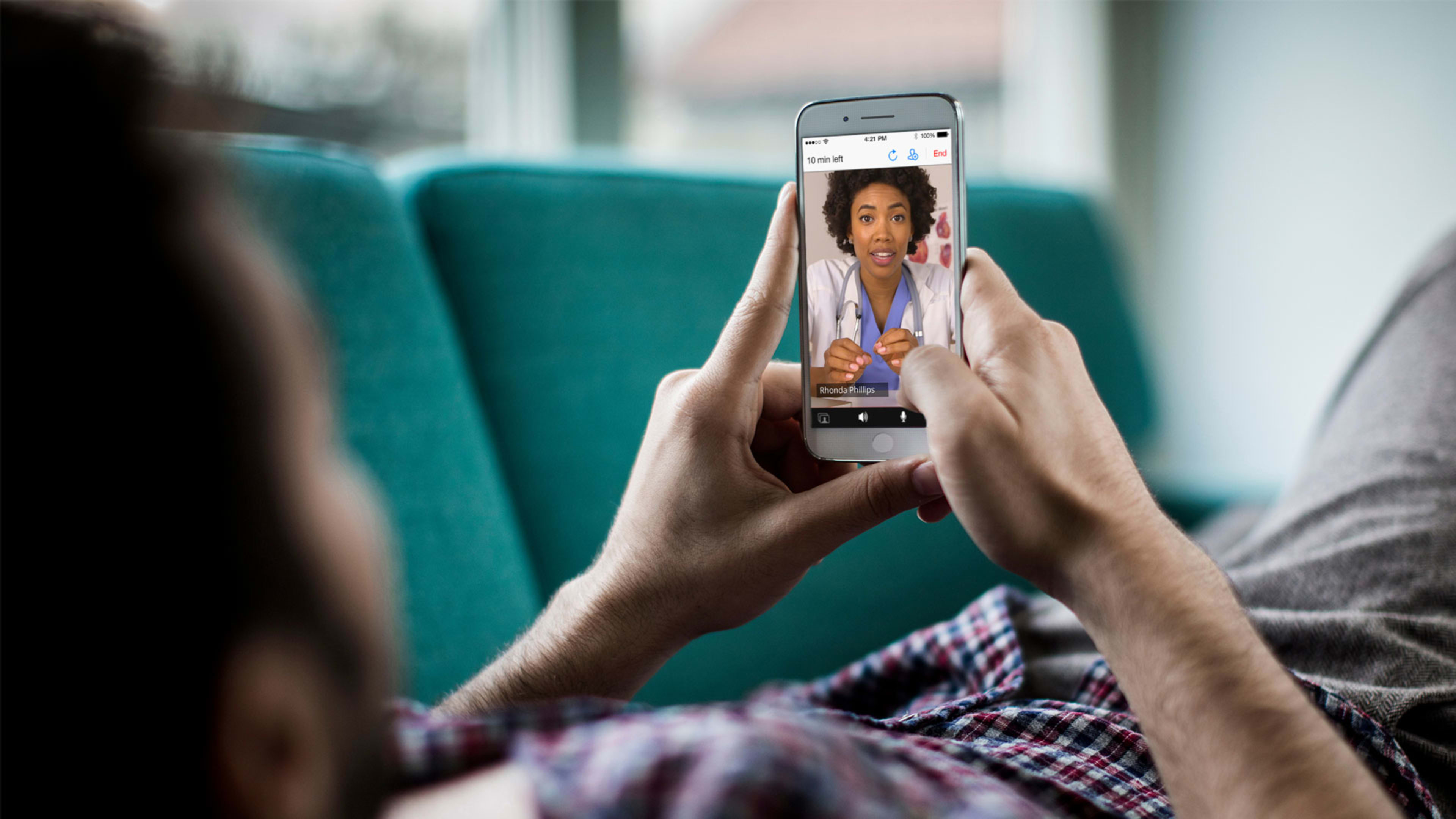Coronavirus tests are not widely available yet. In the meantime, telehealth companies are providing online help to people who believe they may have coronavirus symptoms.
Ro, a telehealth company and online pharmacy, announced last week that it is launching free online assessments for people who believe they have COVID-19 symptoms. Though the platform cannot diagnose COVID-19 without giving patients a definitive test, the company says it can recommend tips for care and self-quarantine. If one of Ro’s doctors believes a patient is extremely high risk for coronavirus, the company will contact the state’s health department and help coordinate follow up care.
Ro is among several telehealth companies that think they can provide valuable triage as the coronavirus spreads in the United States. Major health care systems are also considering how doctors can provide care to patients at a distance by teaming up with telehealth platforms like Teladoc, American Well, and MDLive.

“What we want to do is not have everyone come in,” says Dr. Robert Wyllie, the chief of medical operations at Cleveland Clinic. “We have our infection control people do a phone interview or telehealth visit and then send [patients] into an emergency room or doctors office or to monitor their own health.”
Currently, the Centers for Disease Control recommends contacting your doctor if you are experiencing symptoms like high fever, coughing, or shortness of breath. During the early stages of COVID-19’s spread, public health departments may have wanted to test all potential cases in effort to prevent the disease from infecting more people. But there may soon be so many cases that it no longer makes sense to give everyone with potential symptoms a test. Unless you are having difficulty breathing, it is unlikely that a doctor will recommend that you go to the hospital. More often, doctors are likely to suggest that patients manage their symptoms from home.
Along with Ro, telehealth company American Well is offering to screen patients for COVID-19 symptoms and make recommendations on what they should do. “We’ve already been providing similar care to date,” says Peter Antall, American Well’s chief medical officer. He says the platform typically ramps up the number of doctors on its platform in order to handle pandemics like the flu. The goal is to keep patients who don’t need to be hospitalized away from waiting rooms, where they might infect other people. When a patient is experiencing higher risk symptoms, American Well coordinates with hospitals to bring them in.
“The emergency department will give the patient instructions to stay in the car, and a nurse comes to the parking lot so they can be brought in in a way where they don’t expose themselves to others,” Antall says. The idea is to make hospital entry as organized as possible.
While there is not currently a vaccine or treatment for COVID-19, doctors can provide supportive care. At home, that can mean staying hydrated and taking fever reducers and pain medication. If someone has a severe form of the disease, hospitals may put a patient on oxygen or help their breathing with a ventilator. Researchers in China are currently testing several existing medications, including Chloroquine and Resmdesvir, for their use against the coronavirus.
Still, Dr. Wyllie says that telehealth has in general proved a valuable tool in containing and monitoring disease. “When H1N1 came through, there was a lot of Tamiflu being dispensed, but telehealth was also a major pillar of our treatment of those patients,” he says.
In addition to investing in digital tools, Cleveland Clinic is also preparing its facilities as well. Wyllie says the hospital hosts drills to ensure they can handle an influx of 400 patients at once. He says that the hospital is prepared to bring on 1,000 beds within 72 hours, 150 of which would be set up at the Intercontinental Hotel nearby.
Recognize your brand’s excellence by applying to this year’s Brands That Matter Awards before the early-rate deadline, May 3.
